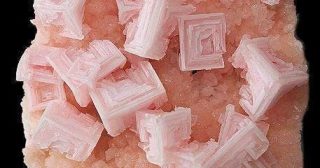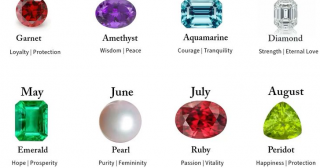The Fascinating Beauty of Pink Halite: Nature’s Geometric Masterpiece

Nature never ceases to amaze us with its endless array of stunning formations, and one particularly striking example is pink halite. As seen in the image above, this mineral displays an almost surreal combination of color and geometry, making it a favorite among collectors and geology enthusiasts alike.
What Is Pink Halite?
Pink halite is a naturally occurring form of sodium chloride (NaCl), more commonly known as rock salt. Its delicate pink hue is usually due to the presence of minerals like potassium or bacterial pigments trapped during its formation. Halite can form in a range of colors, but the pink variety is especially prized for its aesthetic appeal.
Unique Crystal Formation
What sets pink halite apart is its stunning, blocky cubic or stair-step crystal structure. This perfect geometry is the result of halite's isometric crystal system, which allows it to grow in precise right angles. In the image, the layers appear stacked and etched like miniature sculptures—an intricate design crafted by the Earth over thousands of years.
Where Is It Found?
Pink halite is often found in evaporite deposits, especially in arid regions with high salt concentrations. Notable sites include Searles Lake in California, the Dead Sea region, and parts of Iran and Pakistan. The halite from Searles Lake is particularly famous for its brilliant pink shades and sharply defined crystal edges.
Uses and Cultural Significance
While halite is most commonly used as table salt, specimens like the one pictured are typically collected for display rather than culinary use. In metaphysical circles, pink halite is believed to promote emotional healing, balance, and clarity—adding to its allure beyond mere beauty.
A Gift From the Earth
The image of pink halite shown here is not just a mineral; it's a testament to nature’s ability to blend chemistry, time, and environmental conditions into an object of wonder. Whether you’re a geology buff or simply appreciate the wonders of the natural world, pink halite is a crystal worth admiring.













 ป้าวัย 80 ปี พิสูจน์ให้เห็นแล้วว่า…ตราบใดที่ยังไหว ก็ไม่มีคำว่าสายเกินไป #หัวใจนักสู้ #แรงบันดาลใจจากคนธรรมดา”
ป้าวัย 80 ปี พิสูจน์ให้เห็นแล้วว่า…ตราบใดที่ยังไหว ก็ไม่มีคำว่าสายเกินไป #หัวใจนักสู้ #แรงบันดาลใจจากคนธรรมดา” 
